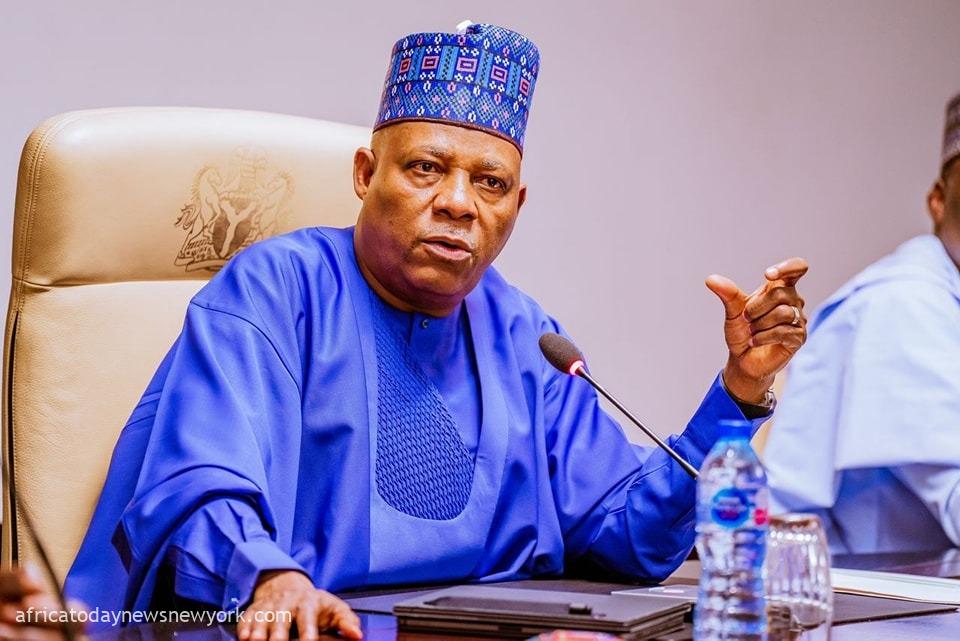The Vice President of Nigeria, Kashim Shettima has expressed optimism that the nation’s currency – the Naira – will continue to appreciate against the dollar given policies being put in place by the government.
Africa Today News, New York reports that as at Sunday morning, Naira exchanges for around N1,200 to a dollar at the parallel market after months of sliding against major currencies.
That continued appreciation of the naira, Shettima believes, is not nearing stoppage.
“Naira went haywire and some people were celebrating but inwardly we were laughing at them because we knew that we have the leadership to reverse the trend,” he told a delegation of the Lagos Chamber of Commerce and Industry (LCCI) who visited him in his office at the President Villa, Abuja, on Friday.
“Asiwaju knows the game, and truly the naira is gaining and the difference will drop further”.
Read Also: 2023 Election, Most Divisive In Nigeria’s History – Shettima
Shettima recalled Tinubu’s leadership qualities as a former Lagos State governor, adding that “we will always thank President Tinubu for providing the blueprint for the development of Lagos that we are seeing today”.
“We are determined to ensure that we generate jobs for our youths. Honestly, the President’s obsession is to live in a place of glory, to transform this country to a higher pedestal,” he said.
“He wants to leave a legacy, one of qualitative leadership because the hope of the black man, the hope of Africa rests with Nigeria.
“I want to assure you that President Bola Ahmed Tinubu is one of you. He understands your ecosystem. In this government, you have an ally and a friend.”
The LCCI President Gabriel Idahosa who led the delegation to the visit, presented some of its recommendations to Shettima including “more innovations to address the insecurity challenge, considering its multidimensional impact on the economy”.
He said, “This could include targeted interventions such as concessional lending facilities, loan guarantees, and interest rate subsidies tailored to the needs of SMEs and key sectors of the economy like agriculture, manufacturing, and power technology.”

